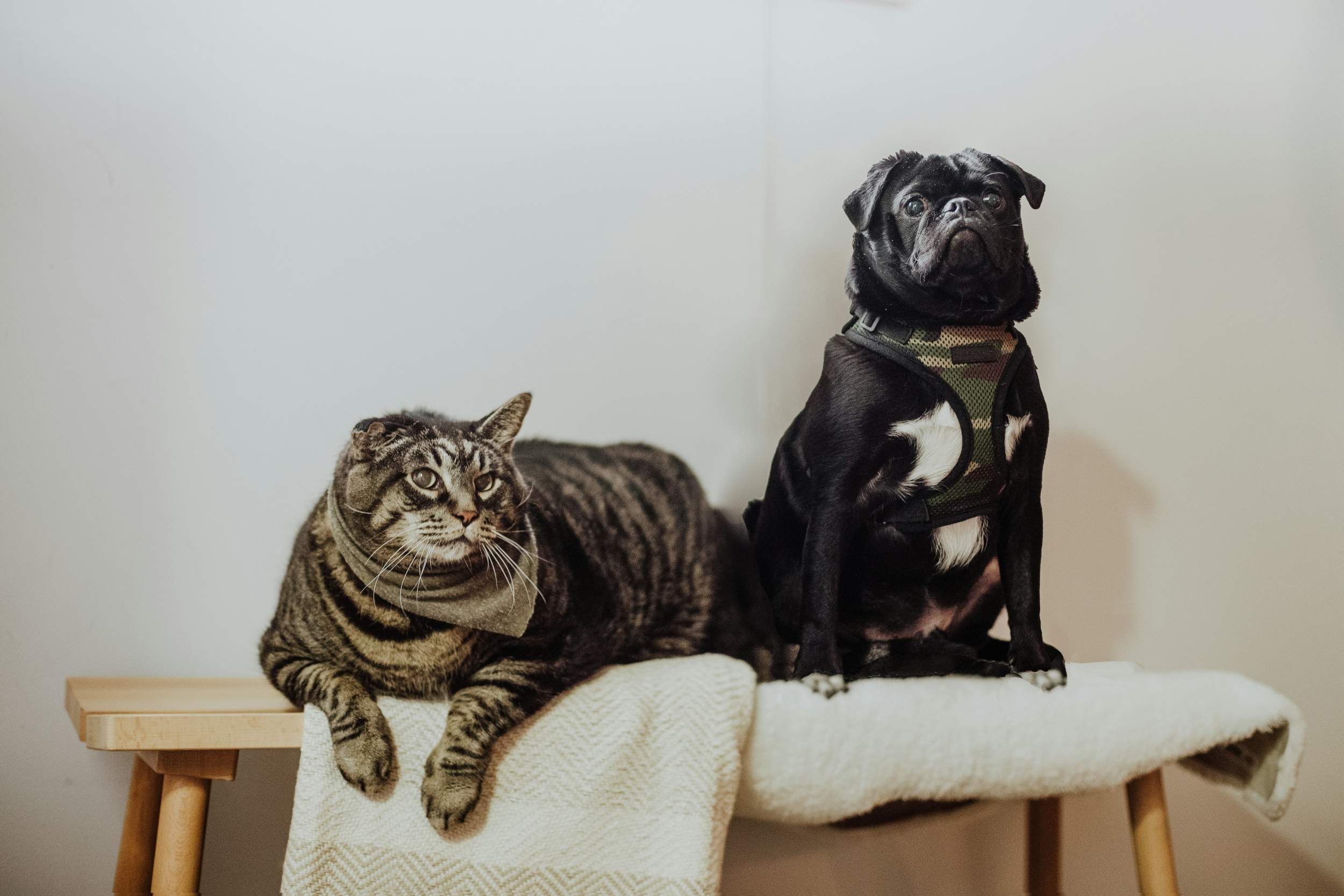Health
New Anti-Obesity Drug for Pets Could Transform Animal Health

Scientists are developing a groundbreaking treatment aimed at combating obesity in domestic pets, specifically dogs and cats. This new drug, known as OKV-119, is being created by the biotech companies Okava and Vivani Medical. With a potential market launch anticipated by 2028 or 2029, the treatment promises to alter the landscape of pet health management.
Obesity is a pressing issue affecting pets worldwide, with an estimated 50% of dogs and 43% of cats in the United Kingdom classified as overweight. Globally, the situation is even more alarming, as nearly 60% of pets are reported to carry excess weight. The health risks associated with obesity are significant, leading to conditions such as diabetes, orthopaedic diseases, and cardiorespiratory problems, ultimately shortening the lifespan of pets. With pet ownership reaching record levels, this health crisis has become a growing concern for veterinarians and animal welfare organizations alike.
Innovative Implant Delivery System
The OKV-119 treatment distinguishes itself from existing options through its delivery method. Instead of requiring weekly injections, this drug is administered via a six-month implant, a chip-sized device inserted under the skin that releases exenatide, a GLP-1 receptor agonist similar to the human medication semaglutide found in Ozempic. GLP-1 plays a crucial role in regulating appetite and glucose levels, and its receptor agonists are already established in human medicine for treating obesity and diabetes.
According to a study published in BMC Veterinary Research in 2024, the implant proved well tolerated in cats and could be inserted and removed swiftly, all while maintaining exenatide levels conducive to weight loss and reduced food intake. Now, clinical trials are expanding to include dogs, with the aim of creating a treatment option that supports pet obesity management alongside proper diet and exercise.
Media coverage has playfully dubbed the treatment “Ozempup,” reflecting a growing public interest in weight loss solutions for pets that parallels the excitement surrounding similar treatments for humans. This trend illustrates how obesity is increasingly viewed as a cross-species health challenge.
Expert Opinions on Pet Obesity Solutions
Despite the excitement surrounding OKV-119, experts in veterinary medicine urge caution regarding reliance on pharmacological solutions. Caroline Allen, Chief Veterinary Officer of the RSPCA, emphasized that exercise and a healthy diet remain the most effective strategies for managing obesity in pets. “A healthy diet and exercise are the best ways to keep our pets happy and well,” Allen stated in an interview with STV News. She acknowledged the difficulties many pet owners face in managing their pets’ weight, highlighting an essential aspect of the ongoing discussion.
Additionally, Professor Alex German from the University of Liverpool, who founded the world’s first Obesity Clinic for companion animals, noted that some dogs possess genetic predispositions to overeating. He identified a specific gene linked to appetite and weight gain in Labrador Retrievers. While he sees potential in medical implants like OKV-119 as support for managing obesity, he stresses that these solutions should complement, rather than replace, traditional methods such as proper feeding and regular physical activity.
As OKV-119 advances through clinical trials, other innovative solutions are also emerging. For instance, UK-based company Omni Pet has developed LeanPaws, a vegan supplement designed to mimic the effects of GLP-1 using a blend of amino acids, probiotics, and fibre. Early testing showed that 77% of dogs taking LeanPaws lost weight, while 63% experienced reduced body fat, and 42% exhibited less begging behavior. LeanPaws is expected to launch in 2026, positioning itself as a natural alternative for pet owners seeking non-pharmaceutical approaches to weight management.
With obesity rates among pets continuing to escalate, the demand for innovative treatments like OKV-119 is on the rise. As the product progresses through broader trials, it could become commercially available within the next three to four years, pending regulatory approval. Until then, veterinarians continue to advocate for balanced diets, portion control, and regular exercise as the foundation of healthy weight management for cats and dogs.
-

 Health3 months ago
Health3 months agoNeurologist Warns Excessive Use of Supplements Can Harm Brain
-

 Health3 months ago
Health3 months agoFiona Phillips’ Husband Shares Heartfelt Update on Her Alzheimer’s Journey
-

 Science2 months ago
Science2 months agoBrian Cox Addresses Claims of Alien Probe in 3I/ATLAS Discovery
-

 Science2 months ago
Science2 months agoNASA Investigates Unusual Comet 3I/ATLAS; New Findings Emerge
-

 Science1 month ago
Science1 month agoScientists Examine 3I/ATLAS: Alien Artifact or Cosmic Oddity?
-

 Entertainment5 months ago
Entertainment5 months agoKerry Katona Discusses Future Baby Plans and Brian McFadden’s Wedding
-

 Science1 month ago
Science1 month agoNASA Investigates Speedy Object 3I/ATLAS, Sparking Speculation
-

 Entertainment2 months ago
Entertainment2 months agoLewis Cope Addresses Accusations of Dance Training Advantage
-

 Entertainment4 months ago
Entertainment4 months agoEmmerdale Faces Tension as Dylan and April’s Lives Hang in the Balance
-

 World3 months ago
World3 months agoCole Palmer’s Cryptic Message to Kobbie Mainoo Following Loan Talks
-

 Science1 month ago
Science1 month agoNASA Scientists Explore Origins of 3I/ATLAS, a Fast-Moving Visitor
-

 Entertainment4 months ago
Entertainment4 months agoMajor Cast Changes at Coronation Street: Exits and Returns in 2025









